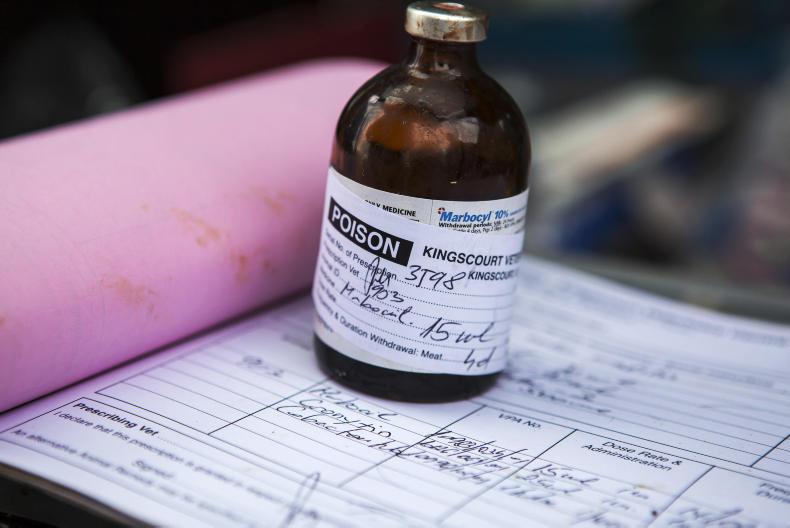The “prudent prescription” of animal medicines is being called for by the Veterinary Council of Ireland.
In new guidelines, the council will ask that only vets with a good working knowledge and relationship with farmers prescribe antibiotic medicines without seeing a sick animal.
Speaking to the Irish Farmers Journal, the president of the Veterinary Council of Ireland Peadar Scanaill, said that the issue was linked to “motorway vets”, who travel around the country selling farm medicines.
“They travel around the country but don’t have any real knowledge of what’s going on at an individual farm level,” Scanaill said.
“They’re just supplying untold amounts of medicines to farmers and breaking the connection between a farmer and their local vet.
“We don’t want once-a-year visits. What we expect is for vets to have been to a farm recently enough to know that an antibiotic is actually needed.”
Anti-microbial resistance
He added that the supply of bulk prescription medicines to animals obviously leads to concern regarding anti-microbial resistance (AMR), which in turn is a threat to human health.
The Veterinary Council guidelines will include a 30-day period in which a farm visit should take place when a prescription is issued, but Scanaill said that this was simply a guideline and was unlikely to impact a local vet with a close working relationship with their customers.
Read more
Vet's corner: check your tyres
Journal vet Tommy Heffernan went to AHI workshop on selective dry cow therapy
The “prudent prescription” of animal medicines is being called for by the Veterinary Council of Ireland.
In new guidelines, the council will ask that only vets with a good working knowledge and relationship with farmers prescribe antibiotic medicines without seeing a sick animal.
Speaking to the Irish Farmers Journal, the president of the Veterinary Council of Ireland Peadar Scanaill, said that the issue was linked to “motorway vets”, who travel around the country selling farm medicines.
“They travel around the country but don’t have any real knowledge of what’s going on at an individual farm level,” Scanaill said.
“They’re just supplying untold amounts of medicines to farmers and breaking the connection between a farmer and their local vet.
“We don’t want once-a-year visits. What we expect is for vets to have been to a farm recently enough to know that an antibiotic is actually needed.”
Anti-microbial resistance
He added that the supply of bulk prescription medicines to animals obviously leads to concern regarding anti-microbial resistance (AMR), which in turn is a threat to human health.
The Veterinary Council guidelines will include a 30-day period in which a farm visit should take place when a prescription is issued, but Scanaill said that this was simply a guideline and was unlikely to impact a local vet with a close working relationship with their customers.
Read more
Vet's corner: check your tyres
Journal vet Tommy Heffernan went to AHI workshop on selective dry cow therapy









SHARING OPTIONS